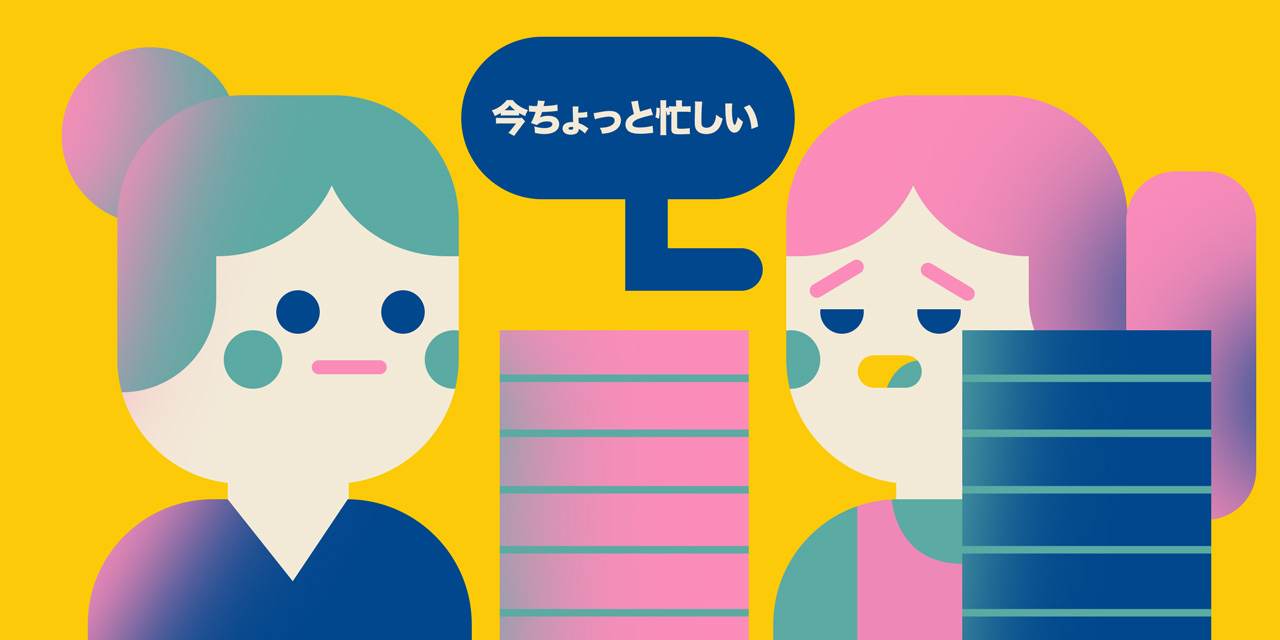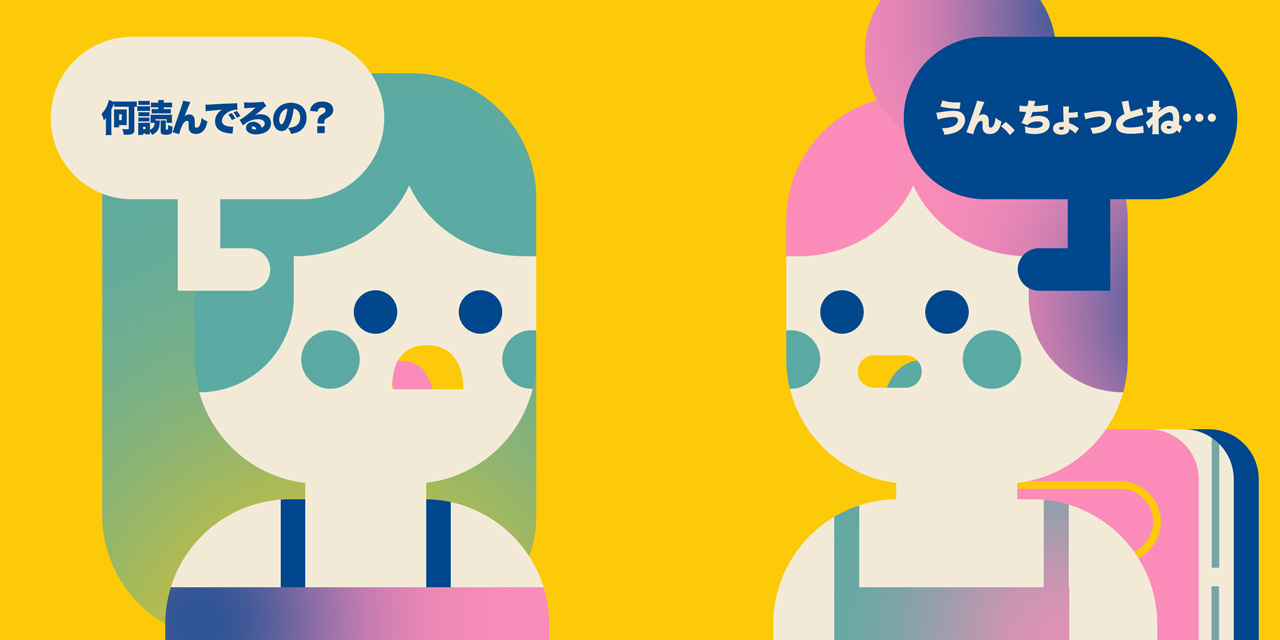ちょっと is one of the more useful and commonly used words in the Japanese language. Even if you're very new to Japanese, it's pretty likely you've come across ちょっと before, because it's short, simple, and easy to say.
ちょっと is one of the most useful and commonly used words in the Japanese language.
But not all ちょっとs are alike. For example, two of ちょっと's meanings, "little" and "very," contradict one another.
If I combine ちょっと with a word like 難しい, meaning "difficult," it can mean either "a little difficult" or "very difficult."
That's a pretty significant change, don't you think?
Luckily, learning the differences between all of these ちょっと usages should be as short and sweet as the word itself, so let's get right to it!
Prerequisite: This article is going to use hiragana, kanji, and provide example sentences. A beginner level of grammar will be very helpful as well.
- Etymology and Kanji of Chotto
- Seven Meanings
- 1. A Little (Quantity, Amount, Degree, Extent)
- 2. A Little (Time)
- 3. A Little, But Not Really
- 4. Hard to (do) / Can't do it! (Difficulty or Impossibility)
- 5. Excuse Me / May I?
- 6. Hey! (Attention, Blame, Irritation)
- 7. I'd Rather Not Say… (Ambiguity)
- ちょっとまって! Here's a Free ちょっと Giveaway!
ちょっと待って! We also recorded a podcast episode about ちょっと. Although the content is pretty complimentary with the article (meaning you can and should do both), those of you who prefer the listened word over the written, we have your back.
Or, just subscribe to the Tofugu Podcast and save it for later, as a review for what you're about to read.
Etymology and Kanji of Chotto

Before we talk about meanings and usage, let's go over the history of ちょっと a little bit. Unfortunately, it's not very exciting because only ちょっと (a little) is known about it.
The word ちょっと as we know it today was derived from a word used in the Kamakura period (1185–1333 AD).
That word was 些と (ちと).
Gradually, its more emphatic variants, ちいと and ちっと, branched out on their own, into even more variants like ちょいと and finally ちょっと. And while these non-ちょっと words are archaic today, they are still used every now and then.
As for how we write ちょっと, there are two kanji versions: 一寸 and 鳥渡. They're both different types of ateji: native or borrowed words that use kanji just for their phonetic components but not their meanings, or just for their meanings and not their phonetic components.
The kanji for the word 一寸 are usually read いっすん, meaning "one sun." Not sun like the sun in the sky, but an old Japanese unit of measurement called a "sun," which was exactly 3.03 centimeters. While the kanji typically don't read ちょっと, the meaning was close to what the word meant: a little. So people started using it this way.
As for how we write ちょっと, there are two kanji versions: 一寸 and 鳥渡.
The kanji in 鳥渡 means something along the lines of "migratory bird," but unlike 一寸, these kanji weren't taken for their meanings at all. Instead, their readings are what matter here: 鳥:ちょう and 渡:と.
But you can probably forget 一寸 and 鳥渡 because ちょっと is almost always written in hiragana. You may see 一寸 from time to time, but even in Japanese texts it almost always has furigana to help you read it. And 鳥渡 is so rare that I've never actually seen it used, myself!
Seven Meanings
The word ちょっと as we know it today actually has seven different, distinct meanings—the only reason we didn't include it on our list of The 100+ Most Important Japanese Words was because explaining all of the different contexts and nuances would have been too much for one list to handle. If you're going to learn how to use ちょっと, you need to see it in action to really understand both how it's used, and why relying on dictionary definitions alone simply isn't enough.
1. A Little (Quantity, Amount, Degree, Extent)

The most standard meaning for ちょっと is "a little."
Since English likes to use more than one word for different types of "little," it's translated into variations like:
- a bit
- a little bit
- a few
- some
- slight
- slightly
- somewhat
Another thing to keep in mind is that in Japanese ちょっと functions as an adverb. But, just as the meanings vary in English, so do the possible parts of speech. It can be both an adverb and an adjective in English translations.
The best way to understand ちょっと is with examples, so let's look at some example sentences! Pay close attention to all the different ways this can be expressed in English, compared to Japanese.
- ちょっと食べる。
- I'll eat a little.
- ちょっと知っている。
- I know it a bit.
- ちょっとしかない。
- There are only a few.
- ちょっとコウイチを見た。
- I glanced at Koichi.
Here it's literally saying something like "I looked at Koichi a little bit," but we have a verb for that in English: to glance.
- 「コウイチって知ってる?」「うん、ちょっと。」
- "Do you know Koichi?" "Yeah, somewhat."
- ちょっと花粉症なんです。
- I have some allergy symptoms.
- この発音はちょっと難しい。
- This pronunciation is a bit difficult.
- 韓国語はちょっとだけしか話せません。
- I can only speak Korean somewhat.
- もうちょっとで電車にひかれるところだった。
- I nearly got run over by a train.
You didn't get a little hit by the train (you'd probably be dead), instead there was just a little bit of space between not getting hit and actually getting hit. So you nearly got run over.
- もうちょっとで宿題終わるよ。
- My homework is almost done.
- ちょっと聞いたんだけど、学校やめるの?
- Someone told me that you're going to quit school. Are you?
Think of this like, "I heard a little something."
2. A Little (Time)

This meaning has the same concept as #1, but it's used specifically for time. Because of that, this ちょっと is often translated to different words in English:
- a little while
- a moment
- a second
- a minute
- a short time
Let's look at some examples and try to think about how these differ from the examples in 1.
- ちょっと待って。
- Wait a sec.
- ちょっと待ってください。
- Hold on a second, please.
These aren't literal seconds, but rather short amounts of time.
- ちょっとお待ち下さいね。
- Can you wait for a moment?
- 東京から大阪へ行く途中でちょっと名古屋に寄った。
- I paid a short visit to Nagoya on my way from Tokyo to Osaka.
- ちょっと考えさせて。
- Give me a minute to think about it.
Again, this is not a literal minute, instead what we mean is, "Can I have a little time to think?"
- コウイチはちょっと考えてからそのメールに返信した。
- Koichi replied to the email after thinking about it for a little while.
- 地元の町は、ちょっとの間でだいぶ変わりました。
- My hometown has changed a great deal in a short amount of time.
- あとちょっとで二時です。
- It's almost two o'clock.
This is similar to the sentence in the last section where you "nearly" got hit by a train. You didn't get a little hit by it, but you were close. Just like it isn't yet two, but it's only a little bit until then.
- ちょっとのところで終電に乗り遅れた。
- I missed the last train by a second.
- 今、ちょっといい?
- Do you have a moment?
3. A Little, But Not Really

This is still the same concept as #1 and #2, but paradoxically. That means it's used to express the opposite meaning. Now instead of meaning "little," it means "not little."
Usually this is translated to words like:
- rather
- fairly
- pretty
- quite
- very
This might sound confusing, but you do the same thing in English, usually as a form of sarcasm. Let's look at an English example of "little" being used to mean "not little."
Your mom walks into your room, seeing you struggling through a mountain of homework.
Mom: Hey, you aren't busy, right?
You: Um, I'm a little busy.You gesture, annoyed, to the papers slowly engulfing you.
In Japanese, instead of using ちょっと like this to be sarcastic, we use it to be humble, polite, or try to make something seem like less of a big deal by diminishing what would be a stronger expression otherwise. By adding ちょっと, you're making your statement vague. And in Japanese, vagueness is always synonymous with politeness.
English has this too. For example:
Your boss calls you while you're in the middle of making dinner.
Boss: Hey! Do you have time to chat about work?
You: Sorry, I'm a little busy at the moment. Could I call you back?
By adding ちょっと, you're making your statement vague. And in Japanese, vagueness is always synonymous with politeness.
You are busy, but you don't want to make your boss feel bad for calling at an inconvenient time. Instead of just saying "I'm busy," you soften it by saying "I'm a little busy."
This is how we use this version of ちょっと in Japanese. Whether we're busy or not, we never say we're very busy right now because that might make the caller feel guilty. It might be okay to say that to a close friend or family member, but when it comes to bosses, coworkers, clients, or acquaintances, you would never emphasize the fact that you're incredibly busy.
In this way, ちょっと becomes a humble word that lets you explain the situation you're in without being rude or blunt to the wrong person.
Let's look at some examples of this paradoxical ちょっと:
- ごめん。今ちょっと忙しい。
- Sorry. I'm a little busy right now.
- ちょっと時間がかかるかもしれません。
- It might take me a little while.
This could actually take a little while or it could take longer. Either way, we keep it vague to be safe. For example, if you're in a store and an employee offers to find something for you, they may say, "Sure, but it may take me a little while, is that okay?" This softens the blow if they end up taking longer than you wanted them to.
- 「暑くない?」「ちょっと。」
- "Isn't it hot?" "A little."
This can be used in situations where it really is just a little hot or situations where it's too hot for you. Usually if someone says "it's a little hot in here" it really means "it's too hot in here for me to be comfortable." Then, what usually happens, is that someone will offer to open a window or change the thermostat. You don't want to shout, "Hey, I'm hot, turn the AC up!" Instead, we try to be more subtle.
- 「テスト、どうだった?」「ちょっと難しかった。」
- "How was the test?" "It was a little/pretty difficult."
This test could have either been a little difficult or really darn difficult. But you don't want to make a big deal out of it so you downplay it. In this case, you don't want to embarrass yourself or make it seem like you want other people to feel bad for you for having a hard time.
- ちょっと困りますね。
- It'll be a little/quite troublesome.
Here is another instance where something may or may not be a big deal for them, but they don't want to make you feel bad about it. If someone says this, you might need to ask them whether the task is impossible for them or if they just need some more time to complete it. You'll have to try not to be rude by asking such direct questions, but sometimes you have to make an effort to get a clear answer in Japanese.
- このアイディアはちょっとダメね。
- This idea is kind of bad.
You don't want to come right out and say, "Wow, your idea stinks!" Soften it instead!
- 「このカバン、三万円だって。」「わっ、それはちょっと高いね。」
- "This bag is ¥30,000." "Wow, that's a bit/quite expensive."
Once again, this might be just a little expensive or insanely expensive to you, but you don't want to shout, "Wow, that price is crazy!"
- 日本語ならちょっと喋れるよ。
- I can speak a little Japanese.
You may be able to speak much more than a little Japanese. You may even be fluent! But saying it this way makes sure you don't sound like you're boasting about your abilities. Downplaying your skills is always safer.
- トーフグは、日本語学習業界ではちょっと名の知られたサイトだ。
- Tofugu is a quite well-known website in the Japanese learning industry.
If you're talking to someone about Tofugu, you can use ちょっと because Tofugu is well-known, but not super famous, and you don't want the listener to feel bad if they don't know about it. If you work at, or are close to Tofugu, you would use it to be humble. You don't want to sound like you're bragging about being famous, or knowing someone famous!
3a. Feelings and Chotto

This form of ちょっと can be used to express how you feel, too. In Japanese, we try not to be open with how we feel to others. Instead, just like we soften our language, we soften our moods, preferences, and feelings. For example, when you're happy, it's common to use ちょっと instead of かなり. かなり is usually translated to "considerably" or "quite," but it carries a much stronger feeling than the English translations suggest.
ちょっと can still mean "just a little" when it comes to feelings, but we usually use it when we mean "quite a lot!"
Here are some examples:
- ちょっとさみしい。
- I miss you a little.
Translation: I miss you so much!
- ちょっと嬉しいかも。
- I might be a little happy.
Translation: I'm really quite happy!
- ちょっと悲しいかも。
- I might be a little sad.
Translation: I'm actually very sad.
All three examples are actually expressing strong feelings!
But instead, these speakers obscure their feelings with their words. You're expected to understand how they feel without any added guilt.
- 今日ちょっと寒いね。
- It's a little/quite cold today, isn't it?
- ちょっと嫌だな。
- I don't really like it.
- ちょっと怖い。
- I'm a little/quite scared.
- ちょっと引くわー。
- I'm a little/quite put off.
- これはちょっとすごいね!
- This is kind of/really awesome!
What's really happening here is that the range of feelings that can be covered by ちょっと is quite wide. And while we have words for these specific feelings:
- めっちゃ: extremely
- とても: awfully
- すごく: very
- かなり: quite/considerably
- ちょっと: a little/a bit
We tend to use ちょっと for all of them instead.
When we express ourselves, the scale should really be more like:
- めっちゃ: beyond extreme
- とても: beyond extreme
- すごく: beyond extreme
- かなり: very
- ちょっと: a little bit (to) quite (to) really
Of course, everyone has their own unique range, but this is my impression of how Japanese people express themselves, myself included. It might be a stereotype, but I think most of us are shy when it comes to showing our feelings to others openly. ちょっと gives us a way to keep it unambiguous.
4. Hard to (do) / Can't do it! (Difficulty or Impossibility)

When you use ちょっと with a negative verb, the meaning changes to mean that doing that verb either will not be easy or it will be downright impossible. This is another way to avoid being direct in order to be polite.
For example, it sounds softer to say, "I can't ちょっと believe it," than "I can't believe it." It's basically like adding "I'm afraid" to the beginning of an English sentence. Another way to think of it is like there is some doubt, suspicion, or amazement added to the meaning.
Here are some examples:
- ちょっとできないと思います。
- I'm afraid I won't be able to do it.
- 今日中にはちょっと終わりそうにない。
- It will probably be hard to get it done by the end of the day.
- ちょっと名前が思い出せないんだよね。
- I'm afraid I just can't remember her name.
- ごめん。ちょっともう無理。
- Sorry. I just can't do this anymore.
- あの発言はちょっと信じられなかった。
- It was hard to believe what he said.
- ちょっとよく分からないんだけど。
- I don't quite understand.
- ちょっと見当もつかない。
- I just have no idea.
- ちょっとどうかな。
- I wonder if it'll go well… (It probably won't.)
5. Excuse Me / May I?

The next meaning is used when you're asking someone to do something. We often add ちょっと to these kinds of requests because it implies that what you're asking will cause them some trouble or discomfort, and that you're aware and sorry for this. It sounds softer and more polite than simply asking a direct question.
Sometimes this ちょっと is used with "excuse me" or "sorry," while other times it can mean "excuse me" or "sorry" by itself.
Here are some examples:
- ちょっとお願いしたいのですが。
- Can I ask you for a favor?
- ちょっとお尋ねしたいのですが。
- May I ask you something?
- ちょっとこっちに来てもらえるかな。
- Could you come over here, please?
- ちょっと今よろしいですか?
- Excuse me. Could I have a moment?
- ちょっとこれ、そこの棚に置いてくれる?
- Sorry, but can you put this on that shelf?
- ちょっとすみませんが、私も一言いいですか?
- Sorry, but could I say something too?
- 山田さん、ちょっと!
- Mr. Yamada, do you have a minute?
6. Hey! (Attention, Blame, Irritation)

You can use ちょっと when you want to get someone's attention, just like the word "hey!"
This one is easy! You can use ちょっと when you want to get someone's attention, just like the word "hey!" This can be shortened to ちょ, ちょっ, or a repeated ちょちょちょ.
I couldn't find any historical or cultural reasons for why we use it like this, but my guess is that the usage from #5 (excuse me) gradually became a casual way of getting someone's attention. Then from there, it started picking up connotations of blame, reproachfulness, and even irritation.
Again, this is just a guess, but it seems to make some logical sense.
Here are some examples:
- ちょっと、これ見て!
- Hey! Look at this!
- ちょっと待てよ!
- Hey, wait!
- ちょっと待って、ちょっと待って。
- Hey, wait! Hey wait!
- ちょちょちょちょ、聞いて!
- Hey hey hey hey, listen!
- ちょっと、それどういう意味?
- Hey! What's that supposed to mean?
- ちょっと、君!
- Hey, you!
- ちょっとやめてよ!
- Hey! Don't! / Hey! Stop it!
- ちょっと、何やってるの?
- Hey! What are you doing?
There's even a well-known member of twin comedy duo "The Touch" who does a bit called ちょっとちょっとちょっと! and another famous phrase from comedy duo "8.6 Seconds Bazuka" called ちょっとまって、ちょっとまって、お兄さん (Hey! Wait, man…). Watch the clip above, and I promise you won't forget how to use this one.
7. I'd Rather Not Say… (Ambiguity)

The last ちょっと is used to make your answer unclear. Sometimes you don't want to bother explaining something. Or maybe you don't want the other person to know your exact feelings or plans. In these types of scenarios, ちょっと is the perfect way out. You can tell them that you're doing something, but not what that something is, with ちょっと, and hopefully they'll get the hint that you aren't going to tell them more.
Here are some examples:
- 「どこに行くの?」「ちょっとそこまで。」
- "Where are you going?" "Just over there."
- 「何やってるの?」「うんまあ、ちょっとね。」
- "What are you doing?" "Well, just a few things."
- 「ああいうのはちょっとね…。」
- "That kind of stuff is a bit... you know…"
- 「何読んでるの?」「うん、ちょっとね。」
- "What are you reading?" "Um, something."
- 「何話してたの?」「うーんちょっとしたことだよ。」
- "What were you guys talking about?" "Just a little issue."
This ちょっと is also used as a way to avoid a direct refusal. For example, if you were invited to a party, but you don't want to go or can't because it's inconvenient for you, you can say things like:
- 「今日夜飲みに行かない?」「あー、今日はちょっと。」
- "Do you wanna go out for a drink tonight?" "Well, today is a bit…"
- 「トーフグで働かない?」「それはちょっと...。」
- "Do you wanna work for Tofugu?" "Um… not really…"
ちょっとまって! Here's a Free ちょっと Giveaway!
Hey, now you know all about ちょっと! If these seem ちょっと overwhelming, just remember that practice makes perfect. There's a Japanese proverb 「塵も積もれば山となる」 which means, "Small things add up to make a big difference." It's the little things that are vital to making big things happen. So even if you aren't a master of Japanese yet, getting the hang of ちょっと is like taking seven tiny steps towards your end goal.
To help you out, we pulled all the example sentences from this lesson, wrote a bunch more, and then put them all in a spreadsheet. You can use them to study by printing them out or importing it into your SRS of choice. Join our email list to download the Chotto sentences list.
We'll send you every free giveaway from now until forever, and let you know when new articles come out.
